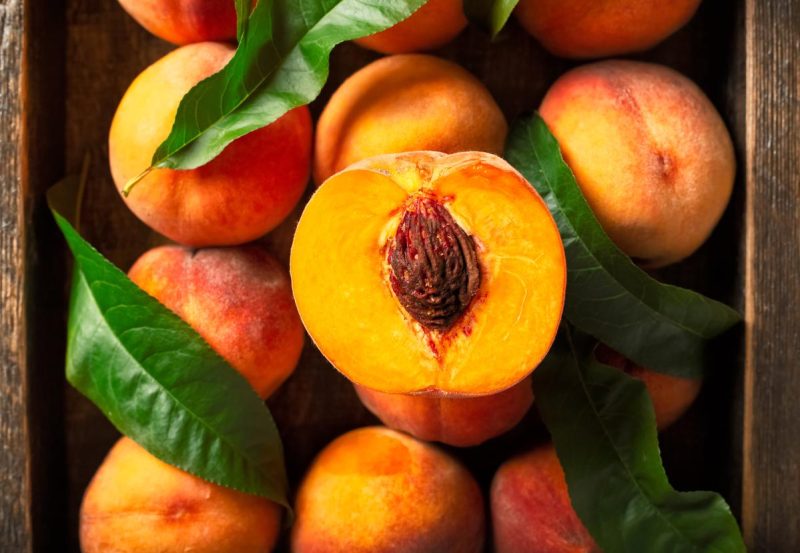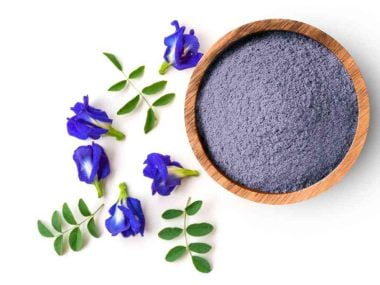Peaches share botanical connections with plums, apricots, cherries, and almonds, categorizing them as drupes or stone fruit. This classification results from their characteristic feature of having fleshy fruit encasing a shell that contains an edible seed.
Peaches offer versatility in their consumption, as they can be enjoyed as standalone treats or incorporated into numerous dishes.
Moreover, these delightful fruits boast impressive nutritional content and potential health advantages, such as supporting digestive health, promoting smoother skin, and relieving allergies.
Here are ten surprising health benefits and uses of peaches.
Packed With Nutrients and Antioxidants
Peaches are a rich source of essential vitamins, minerals, and beneficial plant compounds.
A medium-sized peach, weighing about 5.4 ounces or 150 grams, offers a variety of nutrients in the following approximate quantities (based on a trusted source):
- Calories: 58
- Protein: 1 gram
- Fat: less than 1 gram
- Carbs: 14 grams
- Fiber: 2 grams
- Vitamin C: 17% of the Daily Value (DV)
- Vitamin A: 10% of the DV
- Potassium: 8% of the DV
- Niacin: 6% of the DV
- Vitamin E: 5% of the DV
- Vitamin K: 5% of the DV
- Copper: 5% of the DV
- Manganese: 5% of the DV
Peaches also contain smaller amounts of magnesium, phosphorus, iron, and specific B vitamins, contributing to their nutritional value.
Beyond their impressive nutrient profile, peaches are abundant in antioxidants, potent plant compounds that combat oxidative damage and play a crucial role in safeguarding the body against aging and diseases.
Notably, the antioxidant levels are higher in fresher and riper peaches.
An exciting study revealed that fresh peach juice showed antioxidant effects within 30 minutes after consumption in healthy men.
While fresh and canned peaches offer similar amounts of vitamins and minerals when the canned versions are unpeeled, it’s worth noting that fresh peaches boast higher antioxidant levels and appear more effective at protecting against oxidative damage compared to their canned counterparts
May Aid Digestion
Peaches are known to play a significant role in promoting a healthy digestive system.
A medium-sized peach provides approximately 2 grams of fiber, divided into equal parts of soluble and insoluble fiber.
The insoluble fiber content in peaches adds bulk to your stool, facilitating food movement through your gut and reducing the likelihood of constipation.
Conversely, the soluble fiber in peaches serves as nourishment for beneficial bacteria residing in your intestines. These bacteria, in turn, produce short-chain fatty acids like acetate, propionate, and butyrate, which play a crucial role in supporting the health of your gut cells.
Notably, these short-chain fatty acids have been associated with reduced inflammation and improved symptoms in digestive disorders like Crohn’s disease, irritable bowel syndrome (IBS), and ulcerative colitis.
Moreover, peach flowers, a lesser-known part of the fruit, also contribute to digestive well-being. In traditional Chinese medicine, peach flowers have been utilized to address various digestive issues.
Animal studies indicate that compounds present in peach flowers can effectively increase the strength and frequency of gut contractions, ensuring a proper rhythm that facilitates smooth food movement.
While researchers often employ peach flower extract, an herbal tea made with these flowers is commonly consumed in Korea to aid digestive health.
May Improve Heart Health
Incorporating fruits, including peaches, into your diet can improve heart health.
Peaches have been associated with reducing risk factors for heart disease, such as high blood pressure and elevated cholesterol levels.
Test-tube studies have shown that peaches can bind to bile acids, compounds derived from cholesterol and produced by the liver. This binding process results in bile acids and cholesterol excretion through feces, potentially leading to decreased blood cholesterol levels.
Furthermore, both test-tube and animal studies have demonstrated that peaches may positively impact total cholesterol and “bad” LDL cholesterol levels, blood pressure, and triglyceride levels.
In obese rats, peach juice was found to lower the levels of angiotensin II, a hormone that can increase blood pressure.
While these findings hold promise, it’s important to note that more research is required to validate these effects in humans and establish the precise mechanisms behind the heart-health benefits of peaches.
May Protect Your Skin
The consumption of peaches may offer protective benefits that contribute to the maintenance of healthy skin.
Test tube studies have demonstrated the power of peach compounds to help the skin retain moisture more effectively and, thus, improving skin texture.
Moreover, both test-tube and animal studies have suggested that the direct application of extracts derived from peach flowers or flesh onto the skin might aid in preventing damage caused by UV rays.
In an intriguing discovery, peach flower extracts were observed to delay the formation of skin tumors in mice.
However, to draw definitive conclusions, further research involving human subjects must thoroughly investigate and confirm the skin-protective effects of peaches.
May Prevent Certain Types of Cancer
Similar to many other fruits, peaches offer a wealth of beneficial plant compounds that hold the potential to provide protective effects against various forms of cancer.
Peach skin and flesh both contain high concentrations of carotenoids and caffeic acid – two antioxidants known for their anticancer properties.
Compelling evidence from test-tube and animal research suggests that compounds found in peach seeds can hinder the growth of non-cancerous skin tumors and impede their progression into cancerous ones.
Additionally, peaches boast an impressive content of polyphenols, another category of antioxidants that have demonstrated the ability to curtail the growth and spread of cancer cells
in test-tube studies. Notably, these peach polyphenols may selectively target and eliminate cancerous cells while leaving healthy cells unharmed.
In an intriguing animal study, these polyphenols showcased exceptional efficacy in inhibiting the growth and spread of a specific type of breast cancer.
To achieve an amount of polyphenols equivalent to that used in the study, a person must consume approximately two to three peaches daily.
Furthermore, a separate study revealed that postmenopausal women who incorporated at least two peaches or nectarines into their daily diet experienced a significant 41% reduction in the risk of developing breast cancer over 24 years.
Although these findings are highly promising, it is essential to highlight that only a limited number of studies have been conducted on humans, necessitating further research to validate and fully comprehend the anticancer potential of peaches.
May Reduce Allergy Symptoms
Peaches exhibit the potential to alleviate allergy symptoms.
When your body comes into contact with an allergen, it triggers the release of histamines, chemicals produced by your immune system to combat the allergen and protect your body.
These histamines play a role in instigating common allergy symptoms, such as sneezing, itching, or coughing.
Research indicates that peaches may offer relief from allergy symptoms by impeding the release of histamines into the bloodstream.
Furthermore, test-tube studies suggest that peach extracts may effectively reduce inflammation commonly associated with allergic reactions.
However, further research is essential to ascertain the proper strength and effectiveness of these effects on individuals with allergies. In-depth studies involving allergic subjects are necessary to comprehensively understand the potential of peaches in alleviating allergy-related discomfort.
Immune-Boosting Properties
Peaches stand as a rich source of immune-boosting nutrients and antioxidants. Moreover, test-tube studies have suggested their potential in combating specific types of bacteria, further highlighting their positive impact on immunity.
Protection against Toxins
An intriguing study delved into the effects of peach extracts on smokers, revealing increased nicotine removal through urine, indicating a potential role in protecting against certain toxins.
Blood Sugar Regulation
Studies have explored the compounds present in peaches and their potential to prevent high blood sugar levels and insulin resistance in obese rats, indicating a possible role in blood sugar regulation.
Despite these promising findings, it’s crucial to note that these studies have primarily been conducted on a small scale and in animals.
Consequently, most of these benefits have yet to be validated in human trials, necessitating further research to understand the extent of peach’s potential health benefits fully.
Widely Available and Simple to Add to Your Diet
Peaches present a versatile and easily accessible addition to your diet, offering numerous culinary possibilities.
Whether eaten raw, baked, grilled, broiled, or sautéed, peaches seamlessly integrate into both warm and cold dishes.
For a nutrient-rich snack, indulge in fresh peaches as they are, or enhance their goodness by topping them with yogurt and a sprinkling of nuts.
Take your culinary adventure further by incorporating peaches into salads or infusing them into a hearty chickpea curry, bringing a delightful touch to your meals.
They also add a surprising twist to salsa, and their sweet essence makes them a popular choice for a wide range of desserts.
For a refreshing twist, blend peaches into a delicious smoothie or gently mash them to infuse your water with their natural flavor. The possibilities with beauties are limitless, ensuring your taste buds will never tire of their delightful taste and nutritional benefits.
How to Select and Store Peaches
Peaches offer a delightful variety of options, with some types being white and others yellow. White peaches are known for their sweetness, while the yellow ones lean more towards a tart taste.
When choosing peaches, their fragrance indicates their ripeness, as sweeter-smelling peaches are likely riper. It’s best to avoid peaches with brownish, bruised, or wrinkled appearances, as they may be damaged or overripe. Instead, opt for peaches with firm or slightly soft flesh.
To check for ripeness, gently press the peach’s flesh; it’s ready to eat if it gives slightly.
Keep in mind that peaches continue to ripen after being picked. If your peaches are too firm, leave them on the countertop in a single layer for one to three days to let them mature.
Ripe peaches typically last about a week at room temperature. However, if you don’t plan to consume them within that timeframe, storing them in the refrigerator is best to prevent over-ripening.
You can also freeze ripe peaches, but it’s advisable to slice them first and coat their flesh with lemon juice to prevent browning.
In addition to fresh peaches, you can find them in canned or frozen forms. Remember that canned peaches usually contain fewer antioxidants than fresh or frozen ones.
For a healthier option, choose peaches packed in water rather than syrup. It ensures you can enjoy peaches’ delightful taste and nutritional benefits most beneficially.
Conclusion
Abundant in a plethora of vitamins, minerals, and beneficial plant compounds, peaches boast remarkable nutritional value.
Their versatility in various culinary creations makes them effortlessly integrated into numerous dishes, offering impressive health benefits. These encompass promoting healthier skin, alleviating allergy symptoms, and enhancing digestion and heart health.
Moreover, peaches have shown promising links to a reduced risk of certain cancers while displaying the potential to bolster immunity, shield against toxins, and regulate blood sugar levels.






